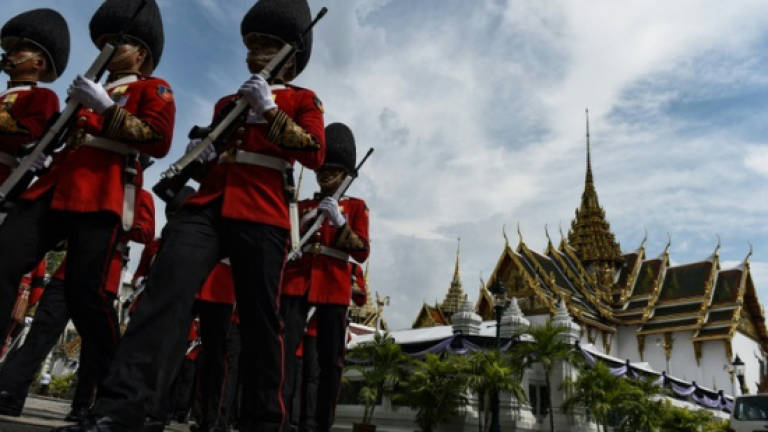Thai cops bust monk-led gang of 'palace imposters'

BANGKOK: A gang of Thai con-artists, led by a monk, have been arrested after masquerading as palace officials to dupe couples into paying for bogus royal visits to their weddings, police said Friday.
Falsely claiming royal ties is a particularly grave offence in Thailand, where the monarchy carries enormous prestige and is protected by one of the world's harshest defamation laws.
The three women and five men, including a monk who allegedly ran the racket, were detained on fraud charges after operating the scam for several years, reportedly raking in over US$500,000.
"The monk and his people asked some couples to pay money for special 'high-up' (royal) individuals to attend their weddings," Police Colonel Pumin Pumpunmuang, a regional commander overseeing the case, told AFP.
They faked documents from the royal household bureau to add credence to their cover story, he said, adding cops finally uncovered the scam after a victim complained.
The gang has been operating out of provinces bordering Bangkok for several years, Pumin added.
He declined to comment on whether the gang were also charged with royal defamation, a crime carrying to 15 years in prison per offence.
Fabricating royal connections can lead to heavy jail sentences in Thailand, where the monarchy is extolled as a beacon of virtue by state and palace propaganda.
In November a 62-year-old woman was jailed for 50 years for trumping up palace ties to swindle victims out of more than US$100,000 among other offences.
A year earlier, a famous Thai fortune teller was charged with improperly using his royal connections to make money.
He later died in military custody under mysterious circumstances.
Veneration for the Thai monarchy solidified under the reign of late King Bhumibol Adulyadej, a beloved figure who died last October at age 88 after seven decades on the thrown.
His only son and successor, 64-year-old King Maha Vajiralongkorn, is now shepherding the kingdom through a new and uncertain era.
The kingdom's royal defamation law was used aggressively during the final years of Bhumibol's reign, especially after a royalist junta seized power in 2014.
Observers say that Vajiralongkorn's legacy will in large part rest on whether he endorses or backs away from the government's use of the law.
In the first lese majeste case of 2017, an anti-junta activist was sentenced to 11 years and four months in prison on Friday for comments posted on Facebook and in a private message chat, according to legal watchdog iLaw.
All media based in the country must self-censor to avoid violating the royal defamation law known as Article 112. — AFP